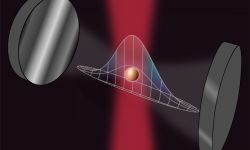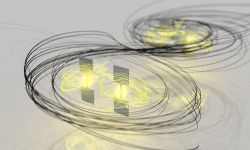
A quantum system consisting of only 51 charged atoms can assume more than two quadrillion different states. Calculating the system's behavior is a piece of cake for a quantum simulator. A research team from the University of Innsbruck and the Technical University of Munich (TUM) has now shown how these systems can be described using equations from the 18th century.

Francesca Ferlaino, professor at the University of Innsbruck, Austria, and scientific director at the Institute for Quantum Optics and Quantum Information (IQOQI) of the Austrian Academy of Sciences receives an ERC Advanced Grant, the highest European funding for established scientists in basic research. She will receive up to 2.5 million euros in research funding. For Ferlaino, it is already the third ERC grant after a Starting Grant (2010) and a Consolidator Grant (2016).

Sensors are a pillar of the Internet of Things, providing the data to control all sorts of objects. Here, precision is essential, and this is where quantum technologies could make a difference. Researchers in Innsbruck and Zurich are now demonstrating how nanoparticles in tiny optical resonators can be transferred into quantum regime and used as high-precision sensors.

Two teams of physicists led by Peter Zoller and Thomas Monz at the University of Innsbruck, Austria, have designed the first programmable quantum sensor, and tested it in the laboratory. To do so they applied techniques from quantum information processing to a measurement problem. The innovative method promises quantum sensors whose precision reaches close to the limit set by the laws of nature.
Read more …Physicists report on first programmable quantum sensor

Experimental physicists led by Gerhard Kirchmair, together with theoretical physicists at the University of Oulu, Finland, have succeeded for the first time in controlling protected quantum states - so-called dark states - in superconducting quantum bits. The entangled states are 500 times more robust and could be used, for example, in quantum simulations. The method could also be used on other technological platforms.